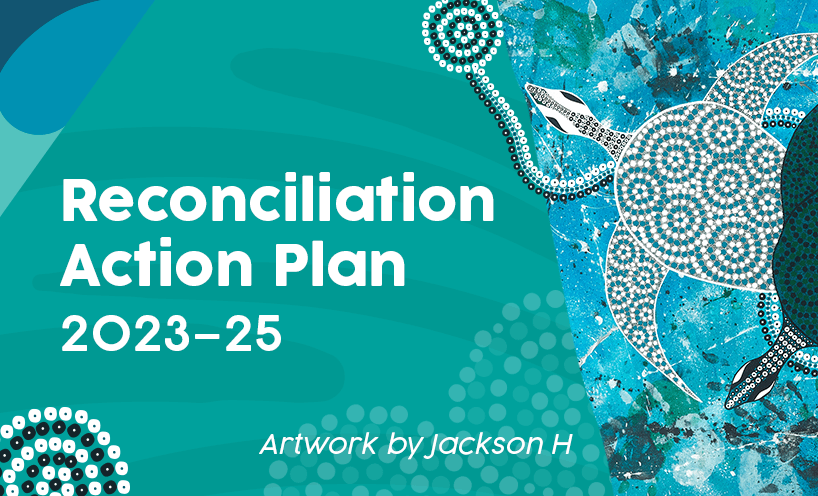Our vision for reconciliation in Australia is that we have a fair and just society where everyone is equal.
The Reconciliation Action Plan (RAP) 2023–25 – our third since 2015 – represents our commitment to making reconciliation our everyday business at Victoria Legal Aid.
We continue to prioritise achieving better outcomes for First Nations people in the legal system by following the lead, expertise and solutions of First Nations people themselves.
By respecting the expertise of First Nations stakeholders and working together in good faith, we hope to build stronger relationships and contribute towards self-determination.
This will be our last plan following the RAP format as future plans will adopt an approach based on self-determination.
Focus of the plan
The RAP focuses on:
- improving the accessibility, cultural safety and responsiveness of legal aid services for First Nations people
- putting the voices of First Nations people at the heart of our service design and performance and embedding their lived experience and expertise in our work
- growing the proportion of First Nations staff to five per cent
- improving recruitment processes for First Nations people and fostering an inclusive and supportive work environment
- looking to better understand what self-determination means for our everyday practice – a process that will be led by First Nations staff, stakeholders and community members.
The actions we will take are based on the areas of relationships, respect and opportunities.
Relationships
Strong relationships with First Nations communities and Aboriginal community-controlled organisations in Victoria are vital to our position of supporting First Nations peoples’ self-determination. We particularly acknowledge the expertise and leadership of the Victorian Aboriginal Legal Service and Djirra in advocating for change and improving outcomes for First Nations people.
We seek to continue strengthening our relationships with these organisations and be led by their perspectives on appropriate service delivery and policy priorities and law reform for First Nations communities. We will also seek to expand the breadth of our relationships to include Aboriginal community-controlled health and other relevant organisations, such as the Victorian Aboriginal Community Controlled Health Organisation, that may support and facilitate more holistic service delivery to First Nations people.
Respect
The foundations of respect will be built, maintained and strengthened through education, which will focus on the richness and diversity of First Nations cultures, histories, knowledge and rights.
We have a responsibility and leadership role within the legal assistance sector to improve the cultural safety and responsiveness of our workplaces and services for First Nations people. This will require review of our cultural learning strategy to strengthen engagement and learning opportunities and develop a suite of learning resources that continuously build the capacity of our staff and practice partners.
Opportunities
We acknowledge that increased employment opportunities for First Nations people contributes to supporting self-determination. We aim to increase our First Nations workforce and commit to a five per cent employment target by the end of this RAP.
The importance of a diverse workforce is essential to achieving services that are culturally safe and responsive for our clients. First Nations staff bring unique knowledge, skills and expertise to our workforce and understand the needs and aspirations of the First Nations community.
Read the plan
Read the mid-term report
Contact
For more information, contact Associate Director, First Nations Services, Courtney McGann on (03) 9269 0192 or courtney.mcgann@vla.vic.gov.au
Updated


